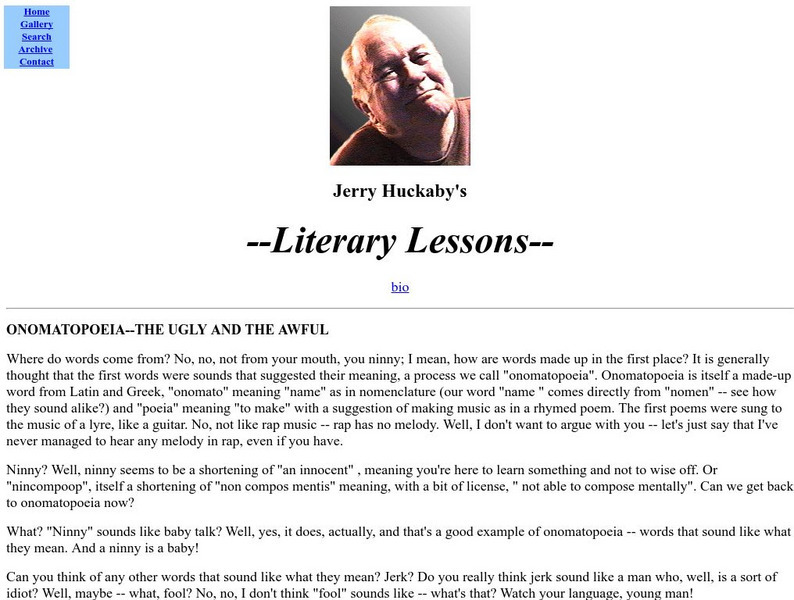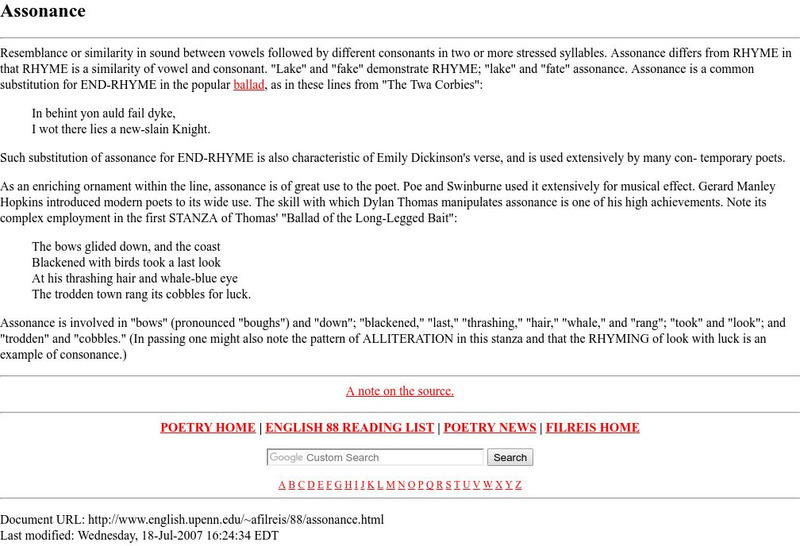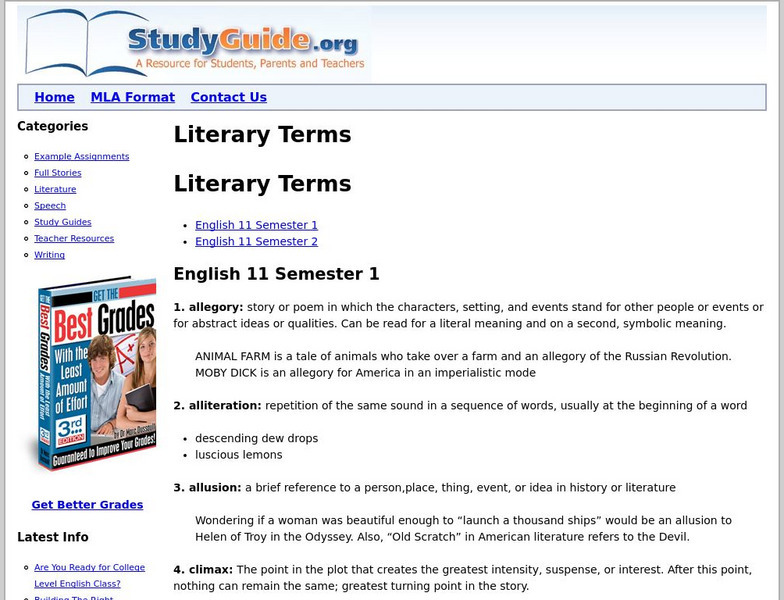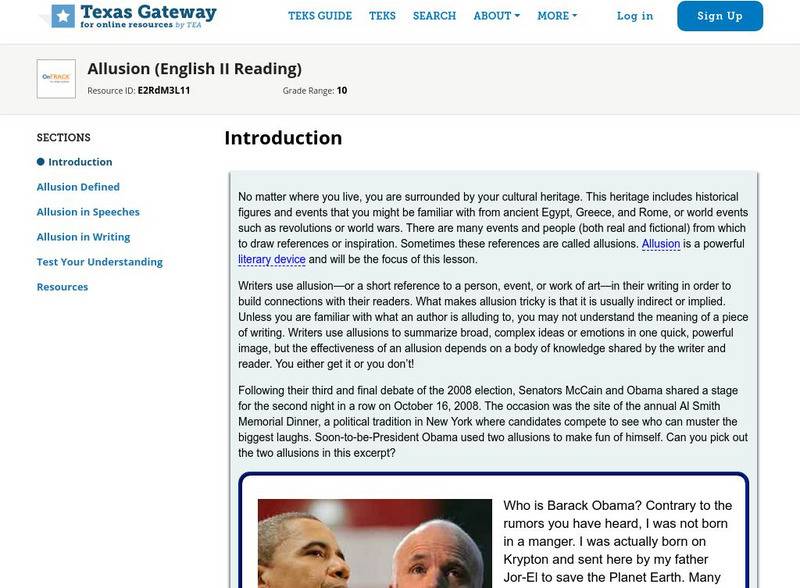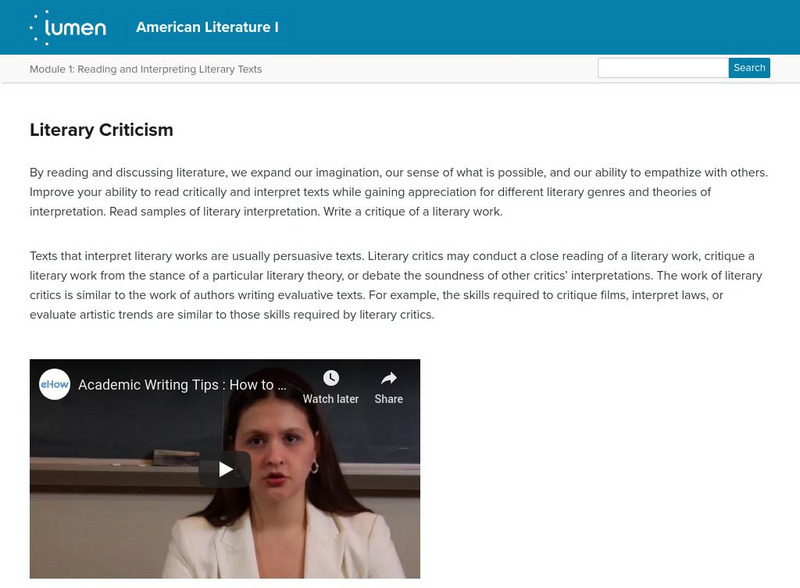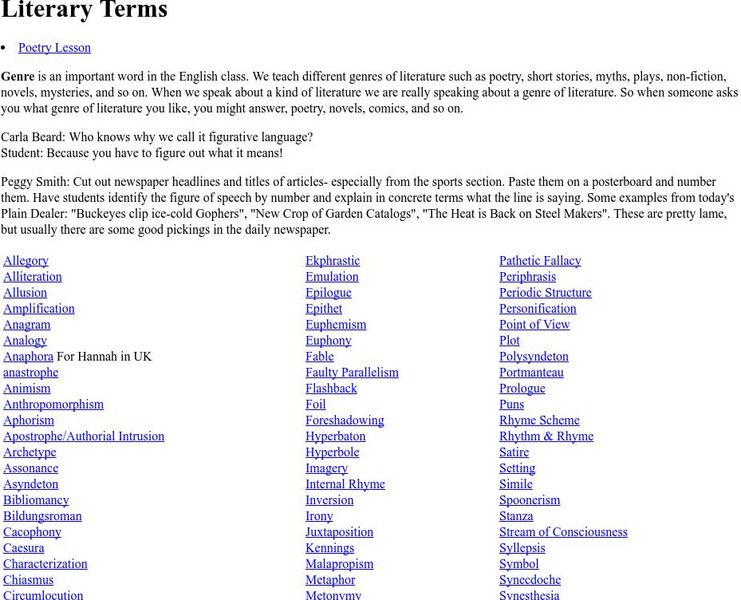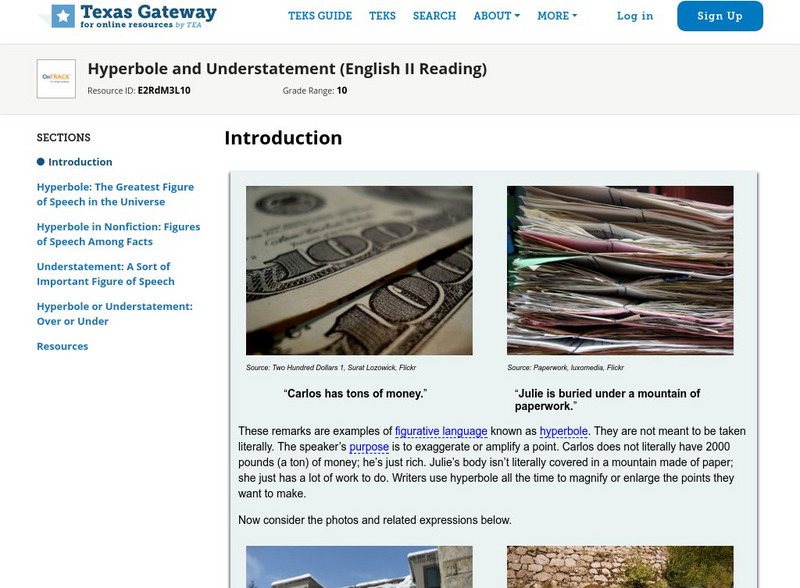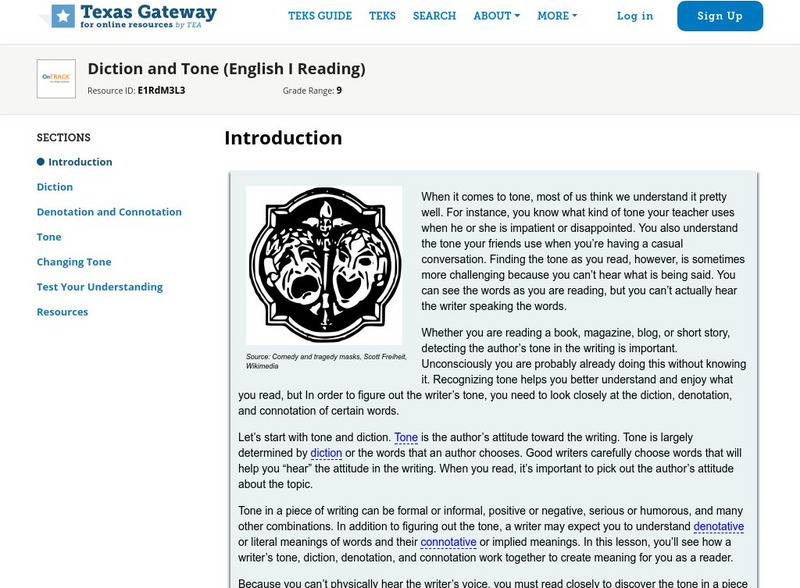English Club
English Club: Vocabulary: Cloze Games: Business 1
Choose from a word bank to complete ten sentences about terms related to money. Hints are available if needed, and a percentage score is displayed once answers are submitted.
Goshen College
Goshen College: Literary Analysis Guide
This resource not only explains how to analyze a text, but also, provides student examples of literary texts. W.9-10.9b Research/Argum, RI.11-12.5 Evaluate text structure
Other
World Wide Words/exploring the English Language
"World Wide Words is devoted to the English language - its history, quirks, curiosities and evolution. The Words site is organized into sections, each with its own index to help you find your way about."
Washington State University
Washington State University: Epigram/epigraph/ Epitaph/epithet
This site gives a definition of the word "epigram." It also includes a few examples of epigrams.
Sophia Learning
Sophia: Selecting Topics for Literary Analysis
A series of three PDF documents providing definitions of commonly used terms when preparing to write a literary analysis, explaining how to comment on a literary text, and demonstrating the process of analyzing the literary text "Hills...
Other
Literary Lessons: Onomatopoeia
Definition and origin of onomatopoeia. A humorous perspective on the formation of common words we use in everyday speech and the relationship between words and the way they sound.
University of Pennsylvania
University of Pennsylvania: Assonance
This resource provides a detailed explanation of the term "assonance." Several examples provided as well as links to related sites.
University of Victoria (Canada)
The U Vic Writer's Guide: Literary Term: Paradox
Definition of paradox with example from the poetry of John Donne and links to related terms such as oxymoron and metaphysical conceit.
Other
Study Guide: Literary Terms: English 11
This is a glossary of literary terms designed for English 11: semester 1 and semester 2.
Texas Education Agency
Texas Gateway: Cognates (English Ii Reading)
Use your knowledge of cognates from other languages to help you understand unfamiliar words.
Texas Education Agency
Texas Gateway: Context Clues and Analogies (English Ii Reading)
[Accessible by TX Educators. Free Registration/Login Required] Learn to find the meaning of words through analogy and other word relationships. L.9-10.5 Fig Lang/nuances
Texas Education Agency
Texas Gateway: Linguistic Roots and Affixes (English Ii Reading)
[Accessible by TX Educators. Free Registration/Login Required] You will be able to recognize linguistic roots and affixes to use in determining the meaning of academic English word and in other content areas.
Texas Education Agency
Texas Gateway: Hyperbole and Understatement (English Ii Reading)
[Accessible by TX Educators. Free Registration/Login Required] Analyze hyperbole and understatement in nonfiction.
Texas Education Agency
Texas Gateway: Diction and Tone (English Ii Reading)
Evaluate the role of diction and tone in literary nonfiction such as speeches, essays, and other forms.
Texas Education Agency
Texas Gateway: Allusion (English Ii Reading)
You will be able to analyze the function of allusion in literary texts.
University of Kentucky
Kentucky Classics: A Glossary of Rhetorical Terms With Examples
Rhetorical terms are defined on this site by the Kentucky Division of Classics. With sentence examples of each in English and Greek. Also related links to Perseus.
Lumen Learning
Lumen: Reading and Interpreting Literary Texts: Literary Criticism
This lesson focuses on how to write a literary criticism, the different theories and approaches to literary criticism, and their standard format.
Get It Write
Get It Write: Cyberlanguage
Find out what various style manuals recommend in the way cyberlanguage is written.
Other
University of North Carolina: Glossary of Literary Terms
This site is provided for by the University of North Carolina at Pembroke. Over forty literary terms defined by college students, each with thorough examples.
Ted Nellen
Cyber English (By Ted Nellen): Literary Terms
This is an extensive glossary of literary terms.
Texas Education Agency
Texas Gateway: Literary Text: Hyperbole and Understatement
[Accessible by TX Educators. Free Registration/Login Required] In this lesson, you will learn to recognize hyperbole and understatement in nonfiction.
Texas Education Agency
Texas Gateway: Literary Text: Diction and Tone
This lesson deals primarily with diction and tone and how to recognize them in your reading. Tone is largely determined by diction or the word choices a writer makes. The process of choosing the right word involves denotation and...
Texas Education Agency
Texas Gateway: Analyze Literary Essays' Inclusion of Personal Opinions and Facts
In this lesson, you will learn how to identify and discuss the use of facts, personal examples, and ideas and how they are woven into a literary essay.
Texas Education Agency
Texas Gateway: Diction and Tone (English I Reading)
In this lesson, you'll see how a writer's tone, diction, denotation, and connotation work together to create meaning for you as a reader.







